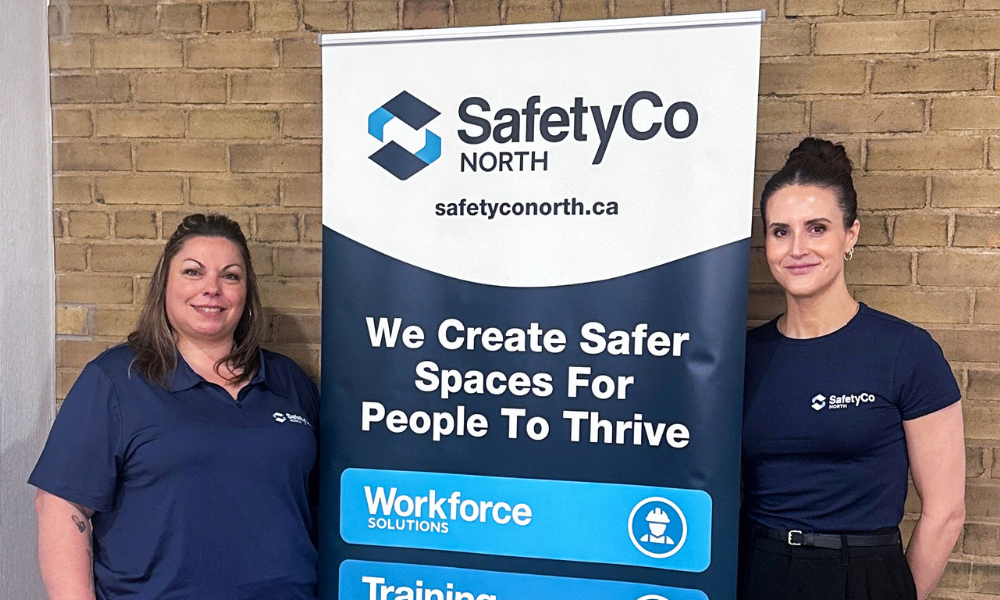Alberta Human Services is looking at some changes to the employer review process for its certificate of recognition (COR) program in light of Alberta’s move to implement an administrative penalty system and on-the-spot ticketing for occupational health and safety violations.
At the recent Alberta Health and Safety Conference in Edmonton, Rob Feagan, director of Partnerships in Injury Reduction of the Alberta Human Services told conference attendees the province is looking into the process for employer review if an employer who holds a certificate of recognition is levied an administrative penalty or issued a ticket.
“What should the consequences be?” Feagan said. What is certain is that if an employer who holds a COR is levied an administrative penalty or issued a ticket, or its employees are repeatedly ticketed, this will constitute an employer review. The process for this type of review and the consequences are still up for discussion, Feagan said.
An employer review could result in either the upholding of the COR — if the employer in question completes and passes certain requirements — or a revocation of the COR.
The COR program is part of Alberta’s Partnerships in Injury Reduction initiative, a program that promotes workplace health and safety through partnerships with various stakeholders that include safety associations, industry groups, employers, educational institutions and labour organizations. Partnerships in Injury Reduction recognizes employers for their health and safety management system through an audit and certification process that ultimately earns them the COR.
Employers with valid COR are eligible to receive financial incentives from the Workers’ Compensation Board through premium rebates, which range between five and 20 per cent, Feagan said.
To maintain their CORs, employers undergo regular maintenance audits conducted by any of the certifying partners within the partnership program. As important as helping employers attain and maintain their CORs, Feagan said it’s also vital to ensure certifying partners are maintaining quality in the audit process.
“Our role (in the partnership) has really increased around quality assurance in the last 10 years, making sure all certifying partners are meeting the same standards and that quality CORs are being issue,” said Feagan.
Alberta Human Services also recently made changes to the employer review process with some new criteria. Under the new criteria, the following situations will spark an employer review:
• Fatalities, serious injuries or incidents
• Two or more stop work orders due to imminent danger within 12 months of each other
• On-going officer activity indicating possible health and safety system deficiencies
• COR holders for four years or more and remain on the Employer Injury and Illness Prevention Program (EIIPP) list for four years or more
• Employers who have “knowingly misrepresented” the reporting of worker injuries to the Workers’ Compensation Board
Employers listed under Alberta’s EIIPP are those that have been identified as having the highest injury rates and are subject to safety inspections. These inspections are designed to help employers meet their obligations under occupational health and safety laws.
Feagan pointed out an employer review, based on the occurrence of any of the above, does not necessarily result in a COR cancellation.
“We don’t automatically revoke a COR,” he said. “We investigate, look at it, sit down with the employer and develop an action plan.”
“We want to help the employer improve so they can keep the COR,” Feagan added.
During an employer review, the COR status will be considered “under review,” and the employer’s eligibility for premium rebates from the Workers’ Compensation Board will be put on hold.
In the event the employer fails the review — meaning the action plan or external audit requirements are not met — the COR will be cancelled and the rebate will be lost, Feagan explained.
Since 1998, the number of employers in Alberta who hold a COR have steadily increased from 1,400 to 9,526 in 2012. These employers represent half of total payroll in Alberta.
“Despite having twice the risk factor, on average PIR (Partners in Injury Reduction) participants have fewer work stoppages, and have a 31.6 per cent lower loss ratio than non-COR holders,” Feagan said.
Many employers in Alberta are also participating in the PIR as a way to boost their credibility with business partners, Feagan added, as construction project owners are now increasingly making COR a pre-requisite for contractor bidding.
At the recent Alberta Health and Safety Conference in Edmonton, Rob Feagan, director of Partnerships in Injury Reduction of the Alberta Human Services told conference attendees the province is looking into the process for employer review if an employer who holds a certificate of recognition is levied an administrative penalty or issued a ticket.
“What should the consequences be?” Feagan said. What is certain is that if an employer who holds a COR is levied an administrative penalty or issued a ticket, or its employees are repeatedly ticketed, this will constitute an employer review. The process for this type of review and the consequences are still up for discussion, Feagan said.
An employer review could result in either the upholding of the COR — if the employer in question completes and passes certain requirements — or a revocation of the COR.
The COR program is part of Alberta’s Partnerships in Injury Reduction initiative, a program that promotes workplace health and safety through partnerships with various stakeholders that include safety associations, industry groups, employers, educational institutions and labour organizations. Partnerships in Injury Reduction recognizes employers for their health and safety management system through an audit and certification process that ultimately earns them the COR.
Employers with valid COR are eligible to receive financial incentives from the Workers’ Compensation Board through premium rebates, which range between five and 20 per cent, Feagan said.
To maintain their CORs, employers undergo regular maintenance audits conducted by any of the certifying partners within the partnership program. As important as helping employers attain and maintain their CORs, Feagan said it’s also vital to ensure certifying partners are maintaining quality in the audit process.
“Our role (in the partnership) has really increased around quality assurance in the last 10 years, making sure all certifying partners are meeting the same standards and that quality CORs are being issue,” said Feagan.
Alberta Human Services also recently made changes to the employer review process with some new criteria. Under the new criteria, the following situations will spark an employer review:
• Fatalities, serious injuries or incidents
• Two or more stop work orders due to imminent danger within 12 months of each other
• On-going officer activity indicating possible health and safety system deficiencies
• COR holders for four years or more and remain on the Employer Injury and Illness Prevention Program (EIIPP) list for four years or more
• Employers who have “knowingly misrepresented” the reporting of worker injuries to the Workers’ Compensation Board
Employers listed under Alberta’s EIIPP are those that have been identified as having the highest injury rates and are subject to safety inspections. These inspections are designed to help employers meet their obligations under occupational health and safety laws.
Feagan pointed out an employer review, based on the occurrence of any of the above, does not necessarily result in a COR cancellation.
“We don’t automatically revoke a COR,” he said. “We investigate, look at it, sit down with the employer and develop an action plan.”
“We want to help the employer improve so they can keep the COR,” Feagan added.
During an employer review, the COR status will be considered “under review,” and the employer’s eligibility for premium rebates from the Workers’ Compensation Board will be put on hold.
In the event the employer fails the review — meaning the action plan or external audit requirements are not met — the COR will be cancelled and the rebate will be lost, Feagan explained.
Since 1998, the number of employers in Alberta who hold a COR have steadily increased from 1,400 to 9,526 in 2012. These employers represent half of total payroll in Alberta.
“Despite having twice the risk factor, on average PIR (Partners in Injury Reduction) participants have fewer work stoppages, and have a 31.6 per cent lower loss ratio than non-COR holders,” Feagan said.
Many employers in Alberta are also participating in the PIR as a way to boost their credibility with business partners, Feagan added, as construction project owners are now increasingly making COR a pre-requisite for contractor bidding.





